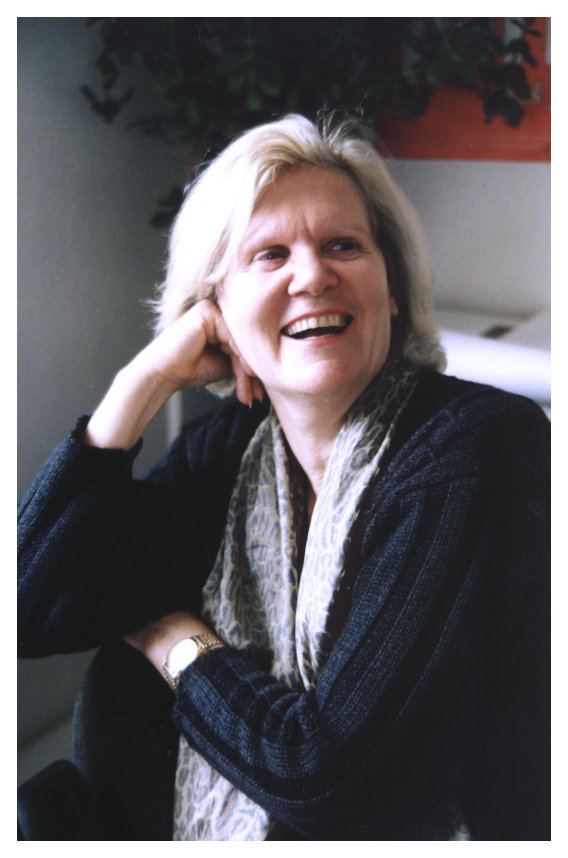

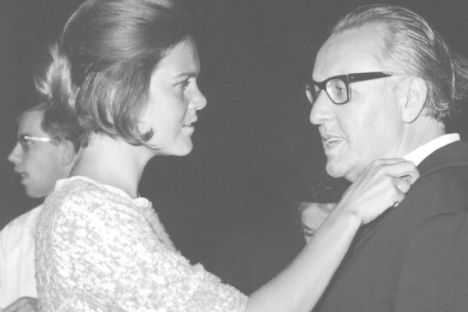 BD: And the Strauss?
BD: And the Strauss?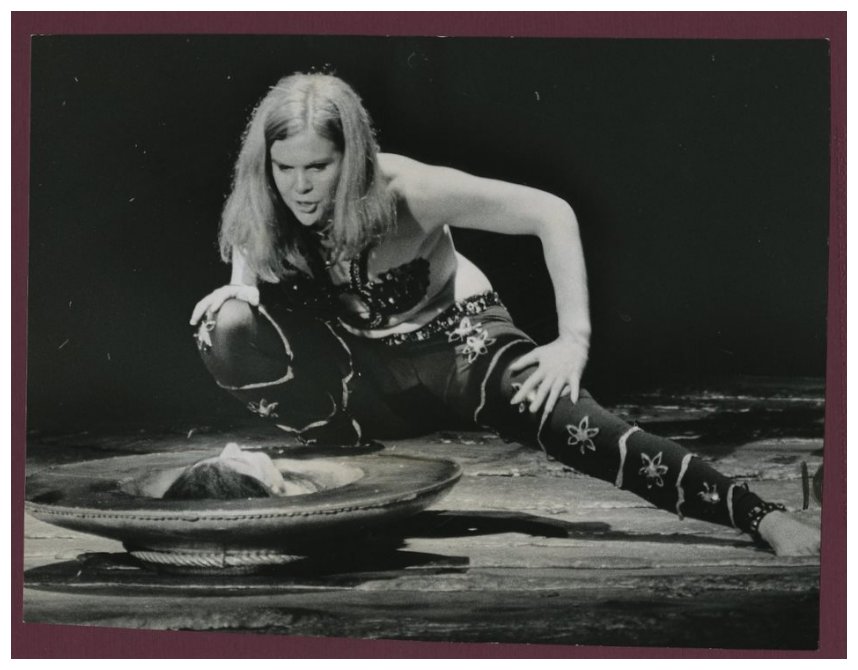 BD: But Strauss wanted the voice of an Isolde in
that role!
BD: But Strauss wanted the voice of an Isolde in
that role!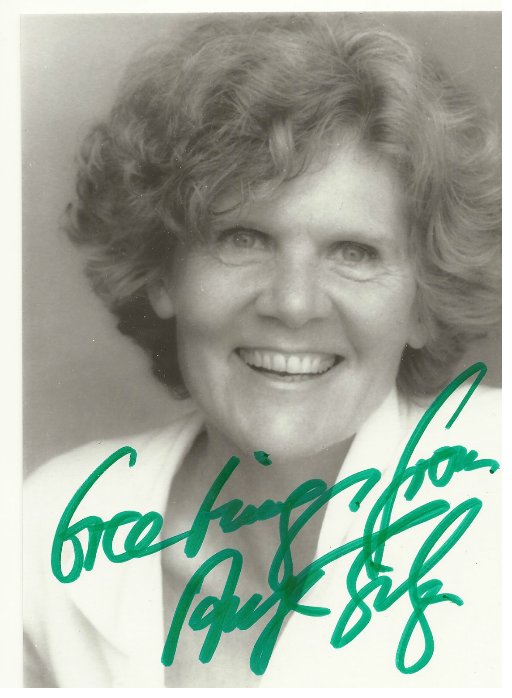 BD: So, you have to come out and be the character
instantly?
BD: So, you have to come out and be the character
instantly?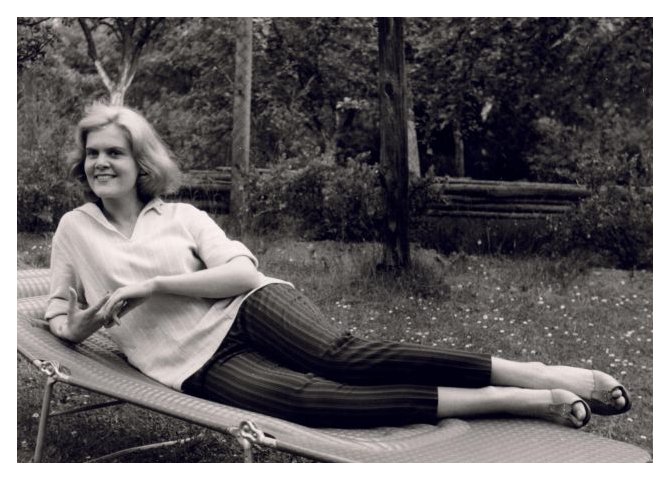 AS: No, because we are going more into the musical
world and into the film world, and this is our future. Maybe we have
to combine it a little bit more, and maybe ask better composers than Andrew
Lloyd Webber. [Note: She started
to say Frank Lloyd Wright, but corrected it. We both laughed and agreed
it was because she was sitting in Chicago.] It’s the same kind
of rhythm in that name. [Coming back to the subject] Sunset Boulevard would have been a great
subject for an opera, but this is obviously wasted, and that’s a pity.
That would have been a role I would really have wanted to do, but not with
this kind of music. It’s not possible.
AS: No, because we are going more into the musical
world and into the film world, and this is our future. Maybe we have
to combine it a little bit more, and maybe ask better composers than Andrew
Lloyd Webber. [Note: She started
to say Frank Lloyd Wright, but corrected it. We both laughed and agreed
it was because she was sitting in Chicago.] It’s the same kind
of rhythm in that name. [Coming back to the subject] Sunset Boulevard would have been a great
subject for an opera, but this is obviously wasted, and that’s a pity.
That would have been a role I would really have wanted to do, but not with
this kind of music. It’s not possible.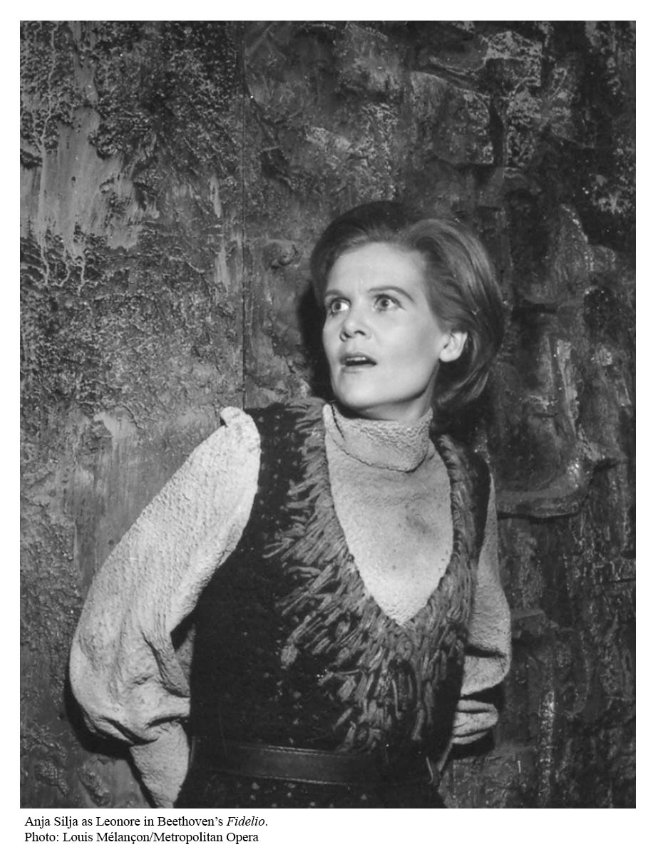 AS: Yes. Glyndebourne has fantastic acoustics.
It could really bring the house trouble, but it doesn’t. You would think
if a voice fills only Glyndebourne it will never fill Chicago whatsoever,
but obviously it does. I cannot explain that to you.
AS: Yes. Glyndebourne has fantastic acoustics.
It could really bring the house trouble, but it doesn’t. You would think
if a voice fills only Glyndebourne it will never fill Chicago whatsoever,
but obviously it does. I cannot explain that to you.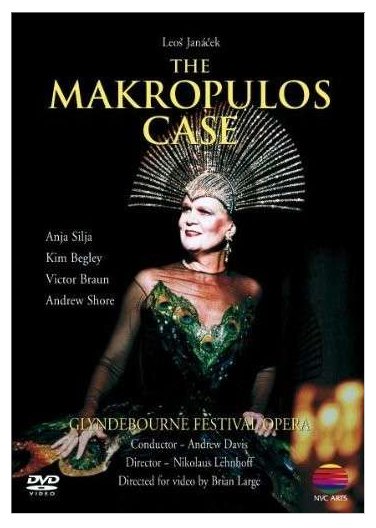 AS: The character I like the most now is Emilia
Marty in The Makropoulos Case.
This was the one who, if I may say so, almost was composed for me, was meant
for me. I feel like Emilia Marty since I started so young. I started
at the age of six and never stopped singing, so I feel a little bit like
her. She’s three hundred fifty years old and I’m only in my fifties,
but thinking back it seems as if I was always on stage. So there is
a little bit of similarity in it. Also the complication of life and
the up and downs reminds me very much of my own life. I can really sympathize
with her, but besides that, not really. One of my favorite parts also
is the Kostelnička in Jenůfa.
I can really not sympathize with a child’s murderer, but on the other hand
I can understand, otherwise I couldn’t portray her. I can understand
that this is possible, especially at the time when it was composed and when
it was meant to take place. That was a difficult time to bring up a
child without a father and not being married. So knowing this time,
I can understand that.
AS: The character I like the most now is Emilia
Marty in The Makropoulos Case.
This was the one who, if I may say so, almost was composed for me, was meant
for me. I feel like Emilia Marty since I started so young. I started
at the age of six and never stopped singing, so I feel a little bit like
her. She’s three hundred fifty years old and I’m only in my fifties,
but thinking back it seems as if I was always on stage. So there is
a little bit of similarity in it. Also the complication of life and
the up and downs reminds me very much of my own life. I can really sympathize
with her, but besides that, not really. One of my favorite parts also
is the Kostelnička in Jenůfa.
I can really not sympathize with a child’s murderer, but on the other hand
I can understand, otherwise I couldn’t portray her. I can understand
that this is possible, especially at the time when it was composed and when
it was meant to take place. That was a difficult time to bring up a
child without a father and not being married. So knowing this time,
I can understand that.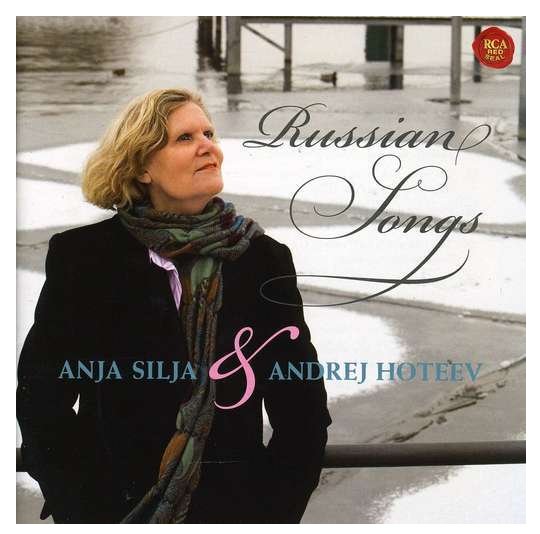 BD: You don’t even look at it as documentation?
BD: You don’t even look at it as documentation?A native of Berlin, Anja Silja began her vocal studies
at the age of six, gave her first performance at the city's Titania Palace
at the age of ten, and made her stage debut at the age of sixteen in Braunschweig
as Rosina in The Barber of Seville.
It was the beginning of a long and distinguished career both at home and abroad,
solidifying in 1960 when she was invited to Bayreuth. She debuted there as
Senta in The Flying Dutchman and
continued to perform in Wieland Wagner's productions until 1967, singing Elisabeth,
Venus, Eva, Elsa, and Freia - roles which she subsequently performed at major
opera houses throughout the world.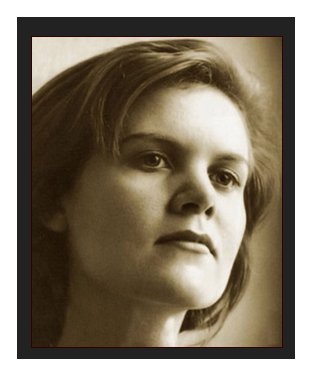 Anja Silja's large and varied repertoire, which includes nearly every major
soprano role in opera, has shaped and informed her unique career. She is especially
acclaimed for her interpretation of Emilia Marty in Janácek's
The Makropoulos Case - in Vienna,
Zürich, Barcelona, Aix-en-Provence, Hamburg, and the Glyndebourne Festival
Opera. She sang the role of Elsa in Lohengrin
and Kostelnička in Janácek's Jenůfa at Glyndebourne and Zürich,
at Covent Garden, and at the Metropolitan Opera in New York; the role of
Amme in Strauss' Die Frau ohne Schatten
in Zürich, Vienna, and Paris; and Salome at Covent Garden, Hamburg,
and the Lyric Opera of Chicago. Other performances include Schoenberg's
Erwartung and Kurt Weill's
The Seven Deadly Sins at the
New Israeli Opera and Stuttgart State Opera, and Berg's Lulu at the Deutsche
Oper am Rhein in Düsseldorf. She made guest appearances in New York with
the Glyndebourne Festival Opera's production of The Makropoulos Case, and Act II of Jenůfa in a concert version at Carnegie
Hall with the Philadelphia Orchestra under Simon Rattle. She made her debut
as an opera producer in Brussels with a production of Lohrengrin.
Anja Silja's large and varied repertoire, which includes nearly every major
soprano role in opera, has shaped and informed her unique career. She is especially
acclaimed for her interpretation of Emilia Marty in Janácek's
The Makropoulos Case - in Vienna,
Zürich, Barcelona, Aix-en-Provence, Hamburg, and the Glyndebourne Festival
Opera. She sang the role of Elsa in Lohengrin
and Kostelnička in Janácek's Jenůfa at Glyndebourne and Zürich,
at Covent Garden, and at the Metropolitan Opera in New York; the role of
Amme in Strauss' Die Frau ohne Schatten
in Zürich, Vienna, and Paris; and Salome at Covent Garden, Hamburg,
and the Lyric Opera of Chicago. Other performances include Schoenberg's
Erwartung and Kurt Weill's
The Seven Deadly Sins at the
New Israeli Opera and Stuttgart State Opera, and Berg's Lulu at the Deutsche
Oper am Rhein in Düsseldorf. She made guest appearances in New York with
the Glyndebourne Festival Opera's production of The Makropoulos Case, and Act II of Jenůfa in a concert version at Carnegie
Hall with the Philadelphia Orchestra under Simon Rattle. She made her debut
as an opera producer in Brussels with a production of Lohrengrin.Ms. Silja has worked with many of the world's great conductors, including Bruno Bartoletti, Karl Böhm, Pierre Boulez, Silvain Cambreling, André Cluytens, Andrew Davis, Christoph von Dohnanyi, Otto Klemperer, Hans Knappertsbusch, James Levine, Antonio Pappano, Simon Rattle, Wolfgang Sawallisch, Sir Georg Solti and Franz Welser-Möst. In recent seasons, Ms. Silja sang in new productions of Pique Dame at the Vienna Staatsoper and of Katya Kabanova at the Theater an der Wien; Pierrot Lunaire with James Levine and the Metropolitan Opera Orchestra at Carnegie Hall, and with the Boston Symphony. She sang a highly acclaimed Kostelnička in Jenůfa at The Metropolitan Opera, and concert performances of Jenůfa's Act II with the Chicago Symphony Orchestra, and of Salome at the newly renovated Salle Pleyel in Paris. Other recent highlights include Janacek's Osud at the Staatsoper in Vienna, The Makropoulos Case in Berlin, Jenůfa in Barcelona, Lulu in Munich, and Jenůfa and The Makropoulos Case in Lyon. Ms. Silja sang highly acclaimed performances of Erwartung in New York, Berlin, Madrid, and at the Verbier Festival with Maestro Levine; a concert version of Elektra in London and Berlin; Jenůfa at the Deutsche Oper in Berlin; Poulenc's Dialogues des Carmélites in Hamburg and at La Scala; and the roles of Herodias in Salome and Countess Geschwitz in Lulu at the Opéra Bastille in Paris. Her extensive discography includes recordings of The Flying Dutchman, Lohengrin, Tannhäuser, Fricka in Der Ring des Nibelungen, Lulu, Wozzeck, Erwartung, The Makropoulos Case and the major repertoire of Kurt Weill. In April 2012, Ms. Silja was honored in New York City with an Opera News Award. -- Biography from Colbert Artists (Text only)
|
This interview was recorded at her apartment on December 5, 1996.
Portions (along with recordings) were used on WNIB in 1999 and
again in 2000. The transcription was posted on this website in 2013.
To see a full list (with links) of interviews which have been transcribed and posted on this website, click here. To read my thoughts on editing these interviews for print, as well as a few other interesting observations, click here.
Award - winning broadcaster Bruce Duffie was with WNIB, Classical 97 in Chicago from 1975 until its final moment as a classical station in February of 2001. His interviews have also appeared in various magazines and journals since 1980, and he now continues his broadcast series on WNUR-FM, as well as on Contemporary Classical Internet Radio.
You are invited to visit his website for more information about his work, including selected transcripts of other interviews, plus a full list of his guests. He would also like to call your attention to the photos and information about his grandfather, who was a pioneer in the automotive field more than a century ago. You may also send him E-Mail with comments, questions and suggestions.